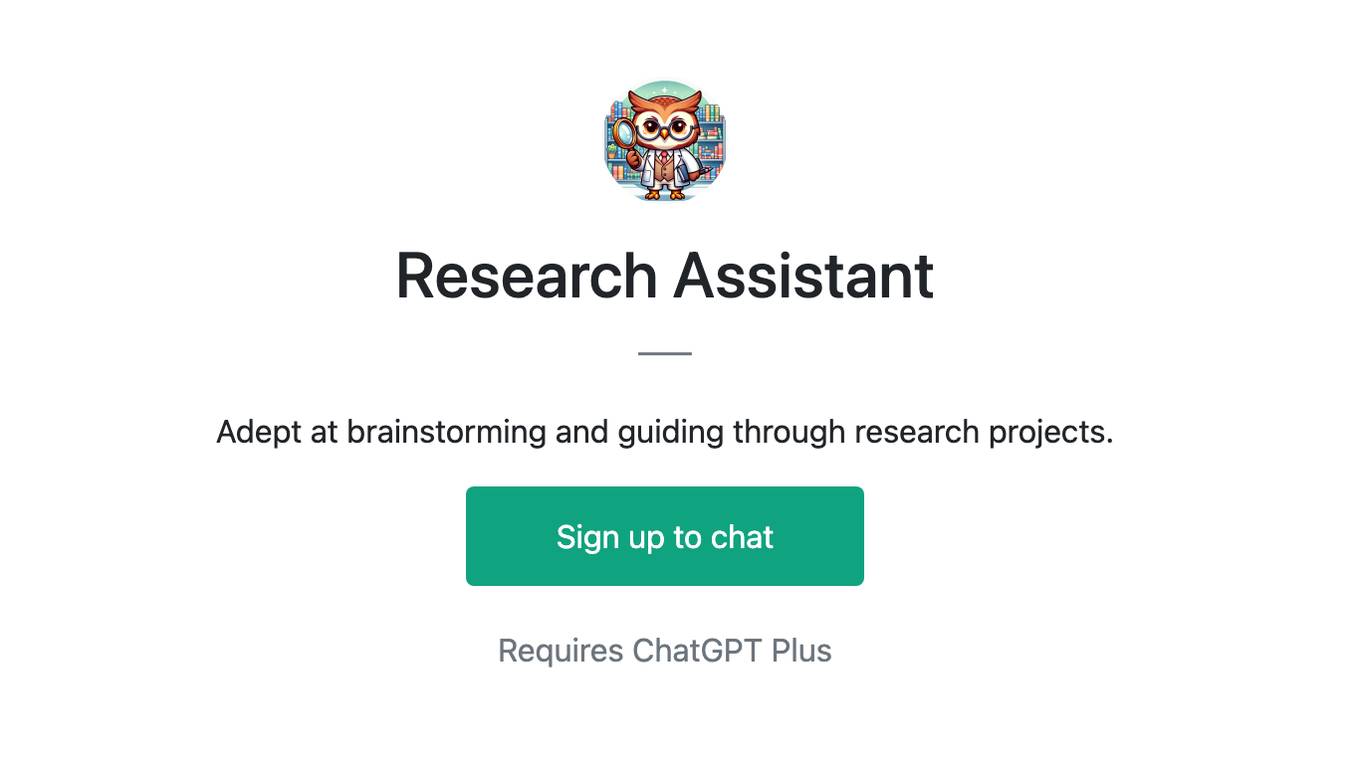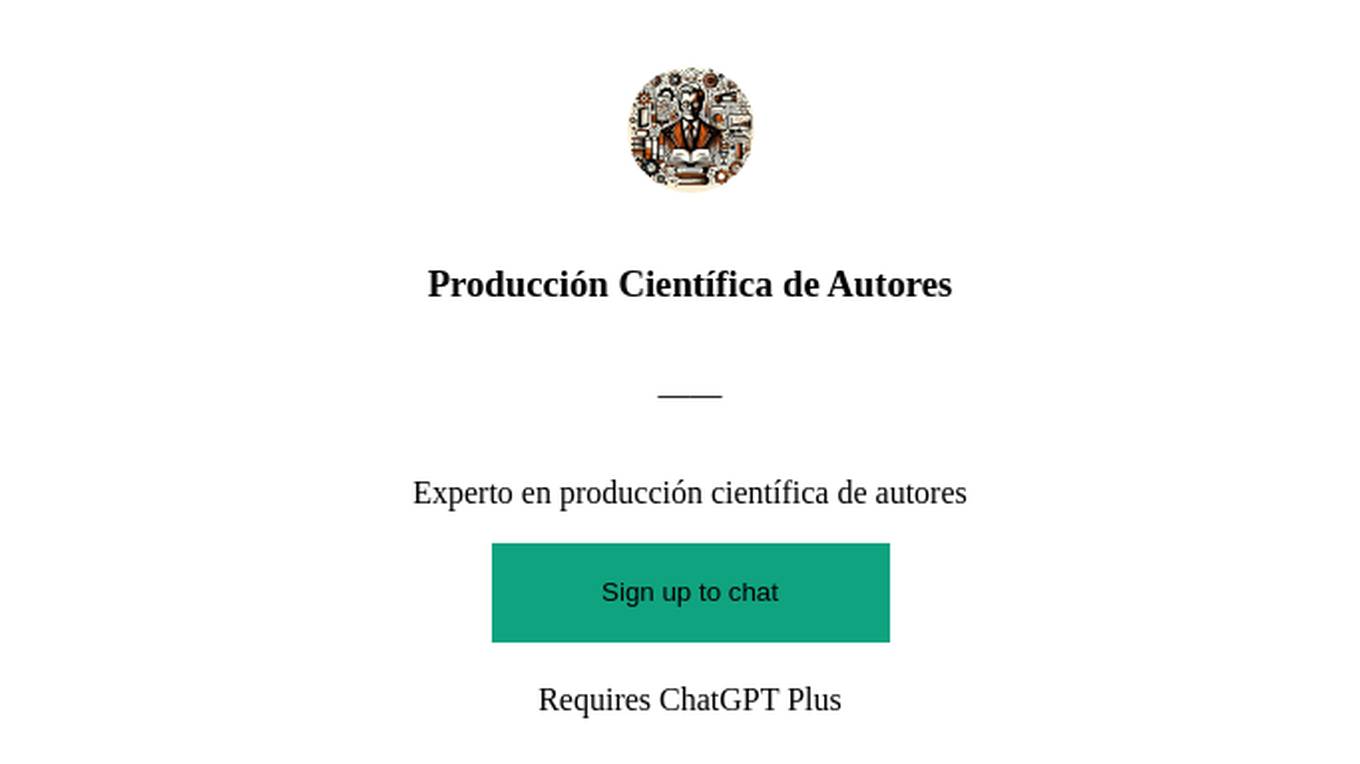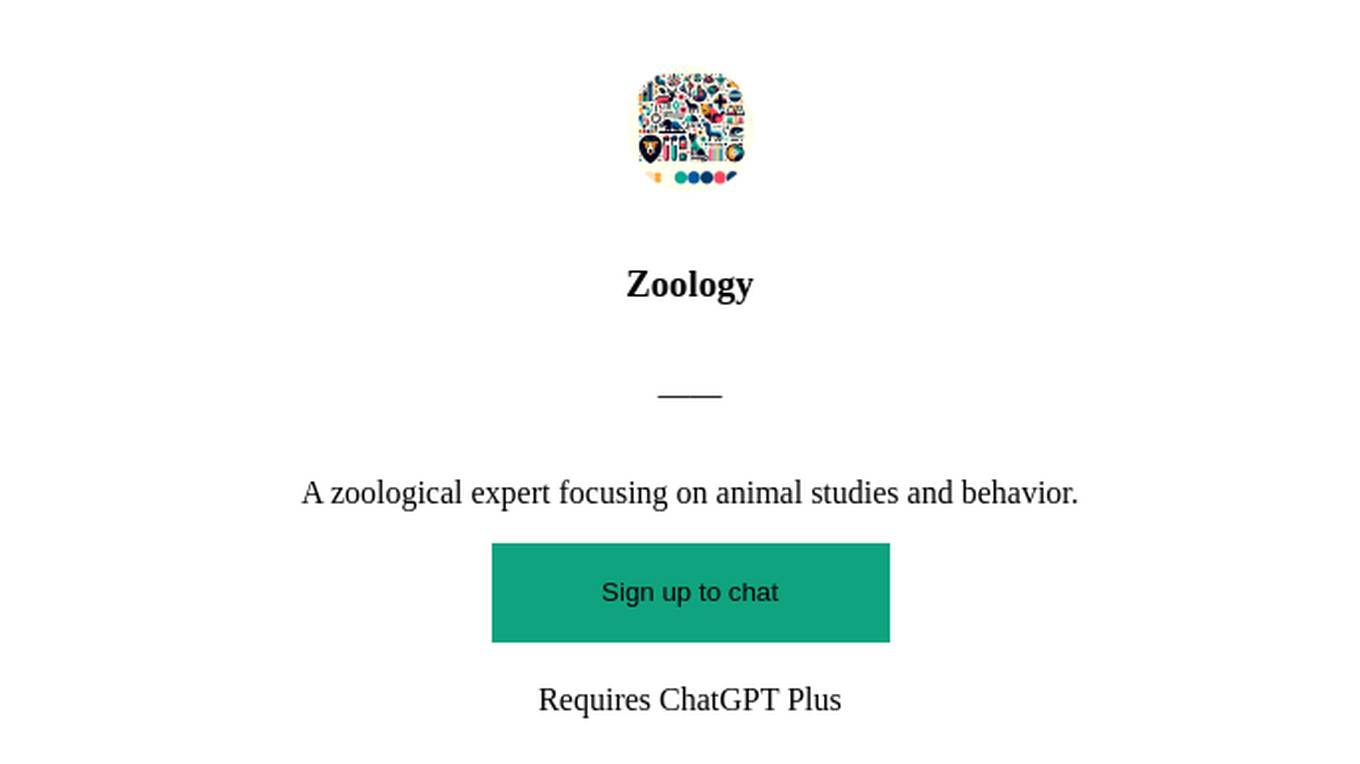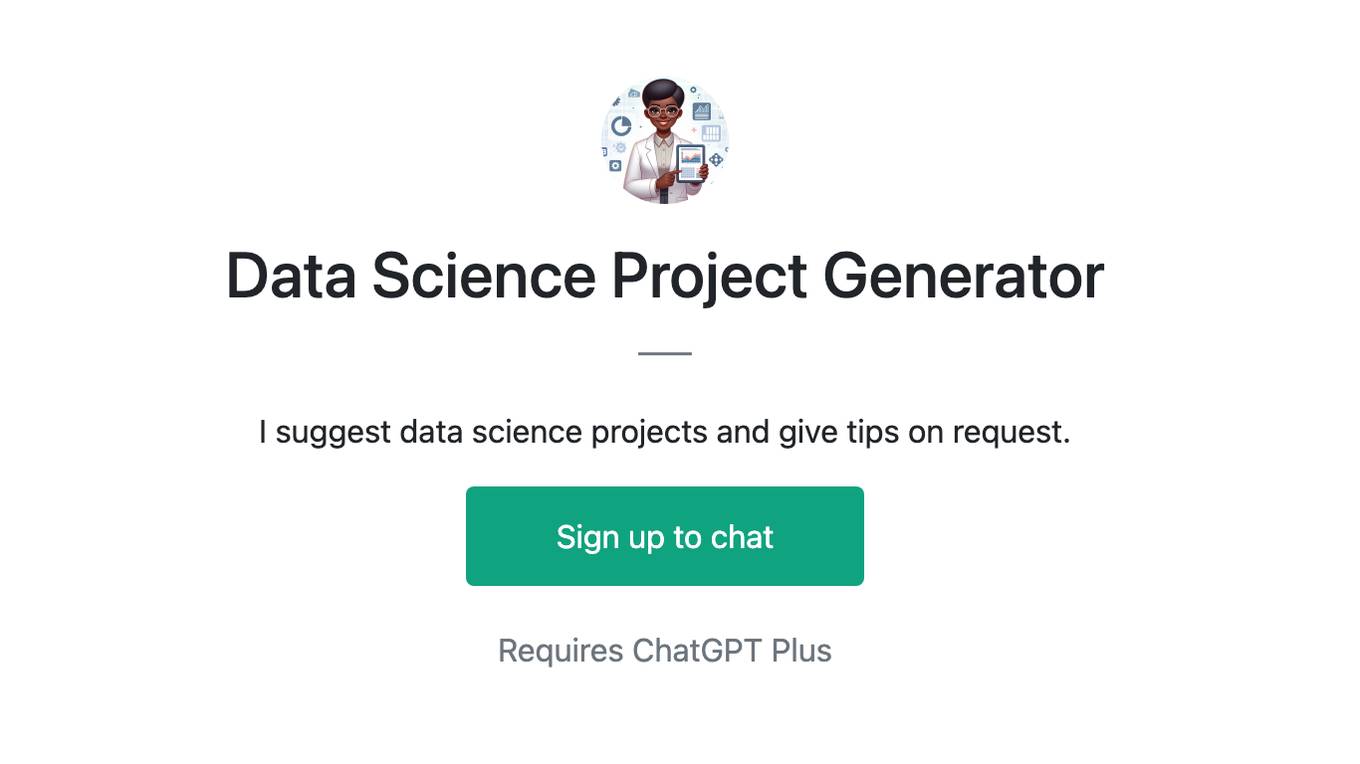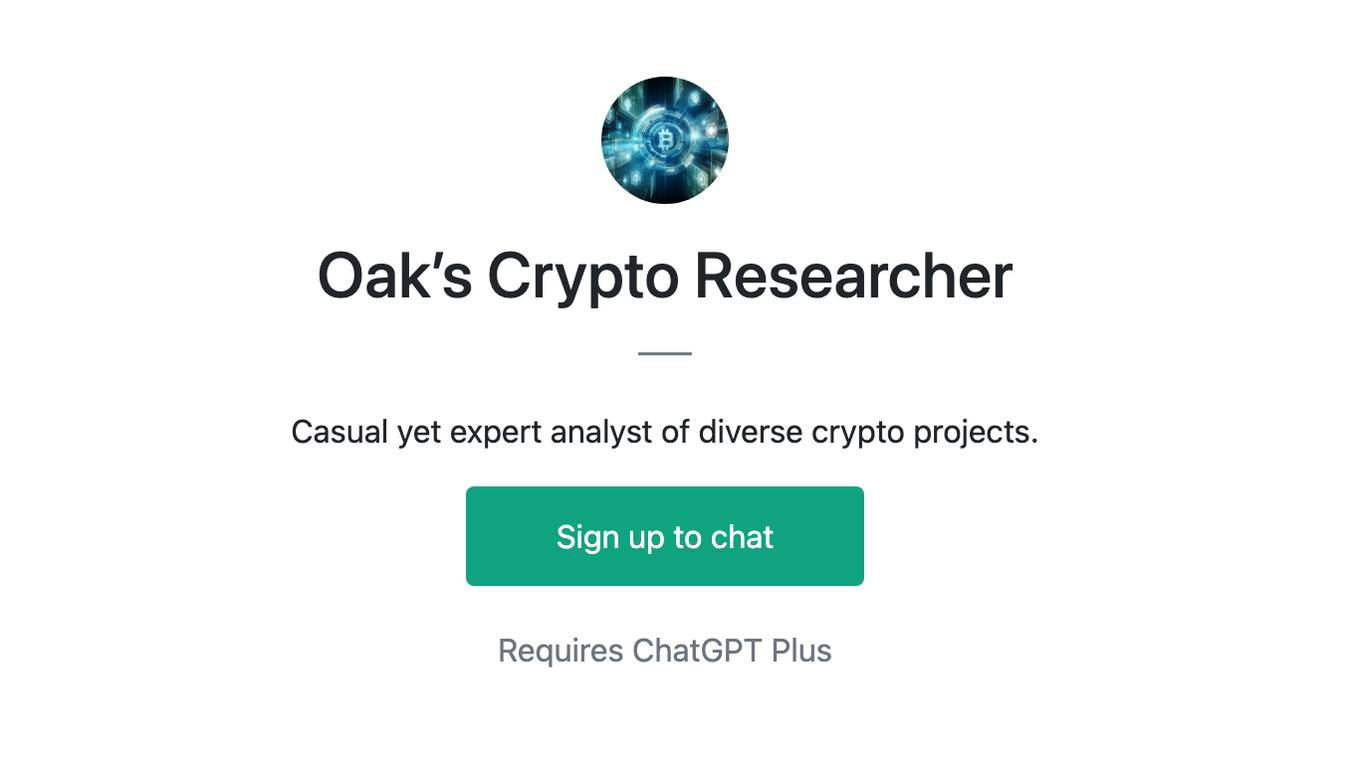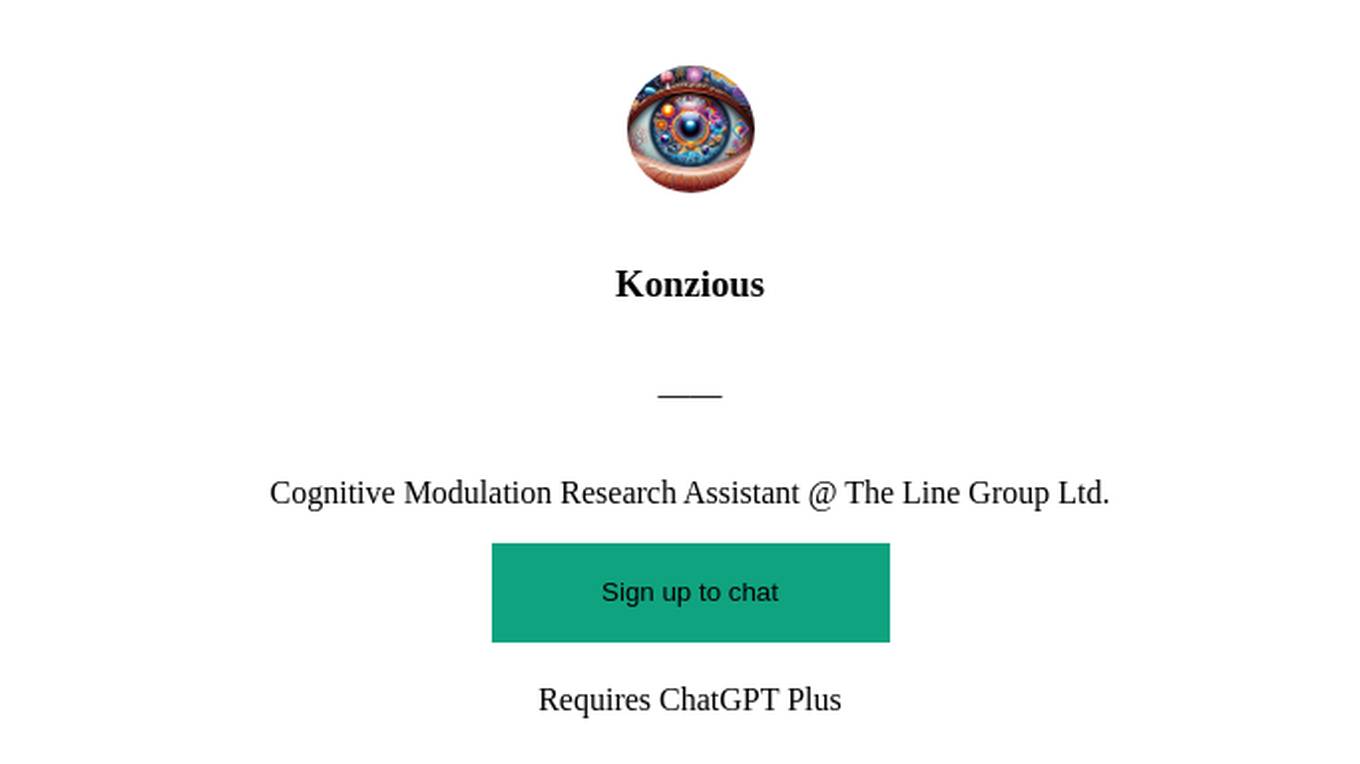Best AI tools for< Research Projects >
20 - AI tool Sites
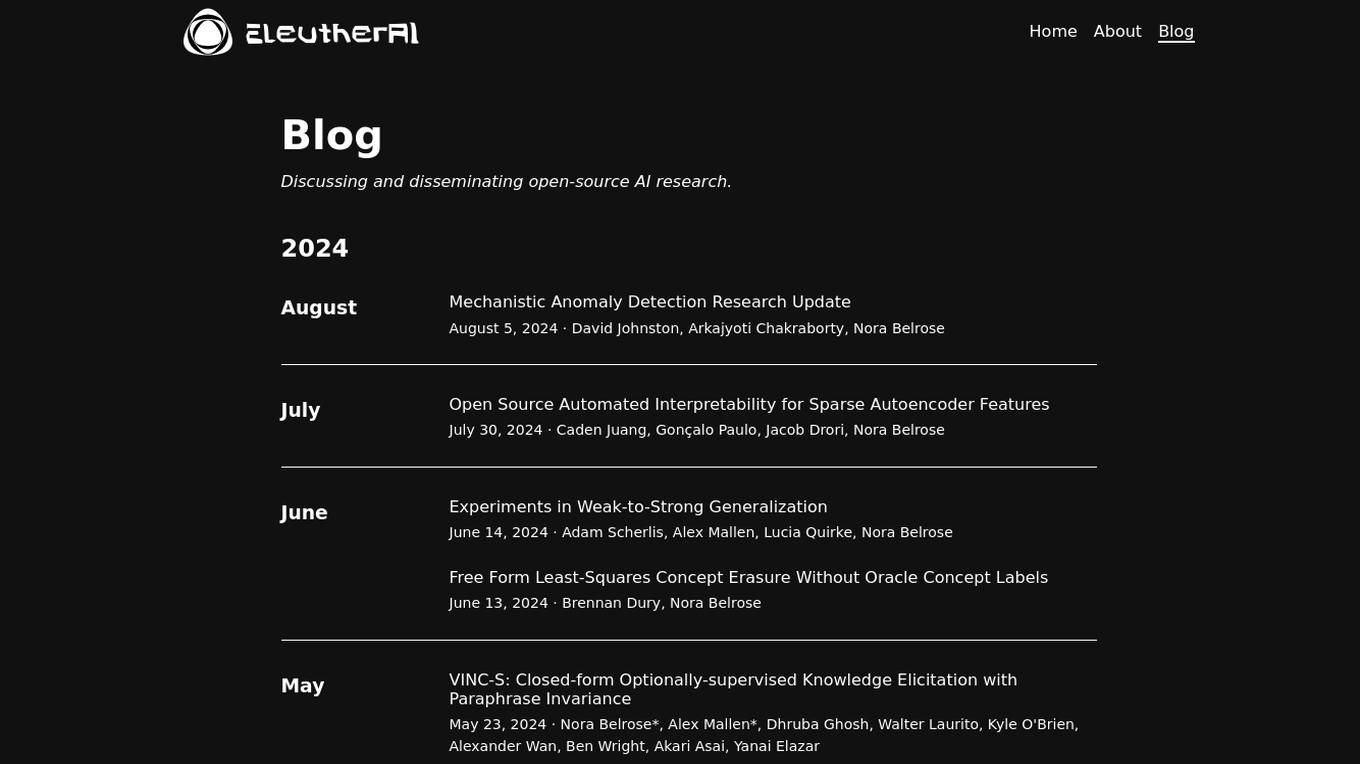
EleutherAI
EleutherAI is an open-source AI research platform that focuses on discussing and disseminating cutting-edge research in the field of artificial intelligence. The platform provides updates on various research projects, including Mechanistic Anomaly Detection, Automated Interpretability for Sparse Autoencoder Features, Experiments in Generalization, Concept Erasure, Knowledge Elicitation, and more. EleutherAI aims to foster collaboration and innovation in the AI community by sharing insights and advancements in the field.

CloudResearch
CloudResearch is an online platform that offers tools for online research and participant recruitment. It provides academic and market researchers with immediate access to millions of diverse, high-quality respondents worldwide. The platform is designed to help researchers recruit vetted online participants, manage complex research projects, and elevate data quality. CloudResearch also offers AI-powered solutions for survey research, participant engagement, and data quality assurance.
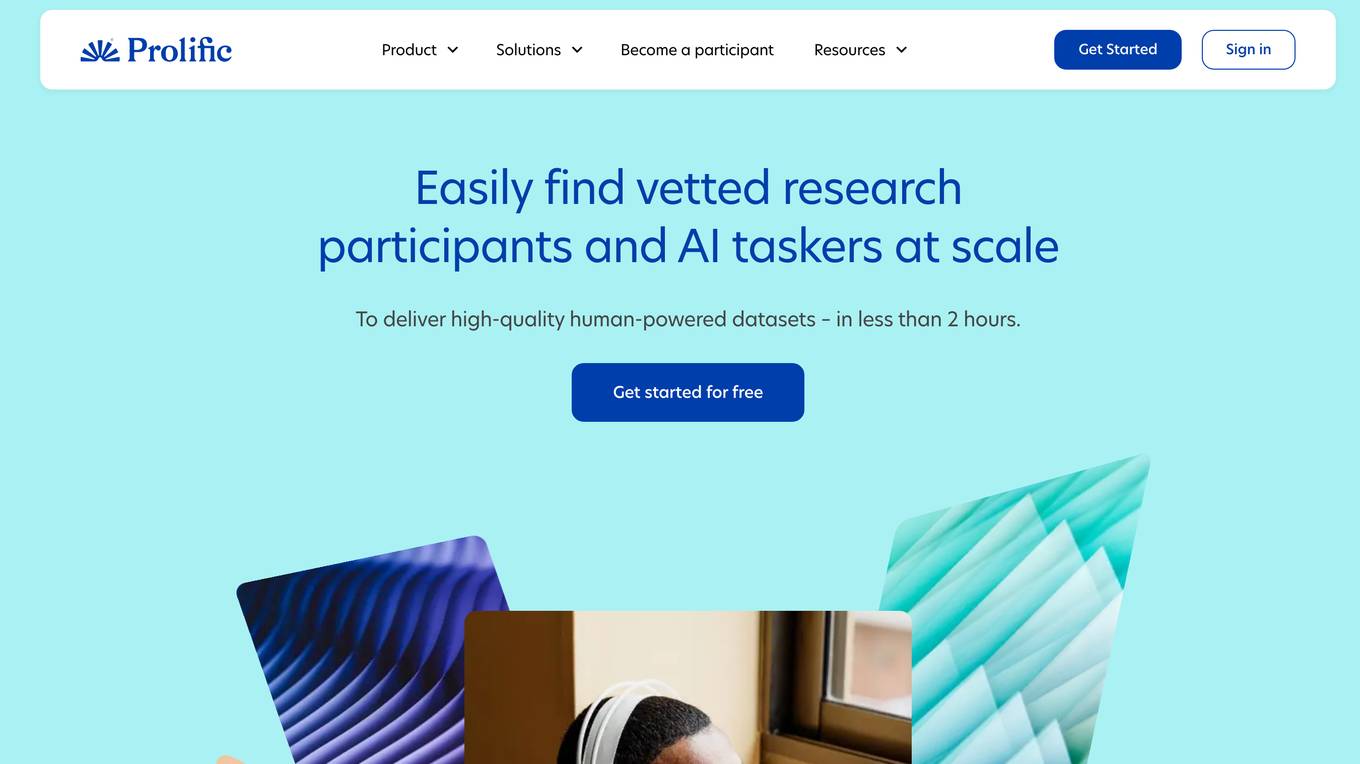
Prolific
Prolific is a platform that helps users quickly find research participants they can trust. It offers free representative samples, a participant pool of domain experts, the ability to bring your own participants, and an API for integration. Prolific ensures data quality by verifying participants with bank-grade ID checks, ongoing checks to identify bots, and no AI participants. The platform allows users to easily set up accounts, access rich and comprehensive responses, and scale research projects efficiently.
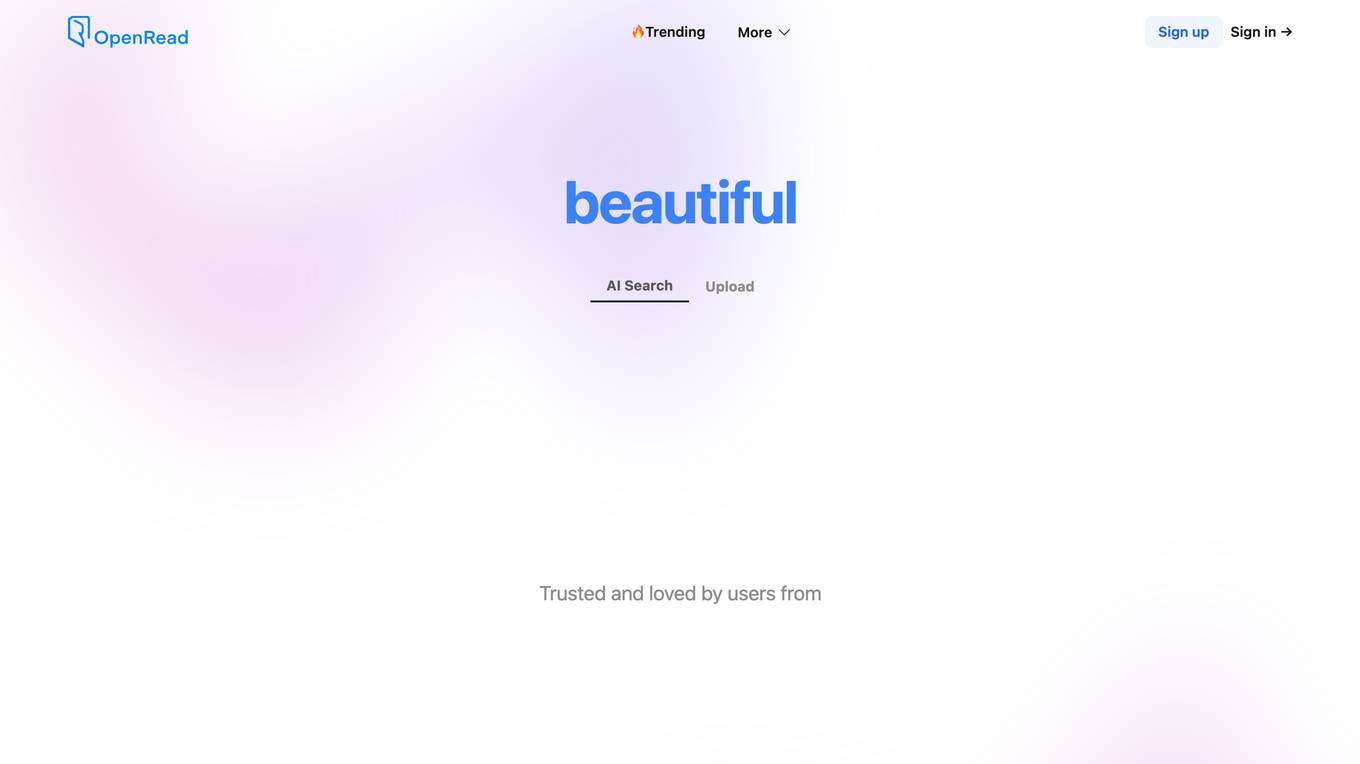
OpenRead
OpenRead is an AI-powered research tool that helps users discover, understand, and organize scientific literature. It offers a variety of features to make research more efficient and effective, including semantic search, AI summarization, and note-taking tools. OpenRead is designed to help researchers of all levels, from students to experienced professionals, save time and improve their research outcomes.
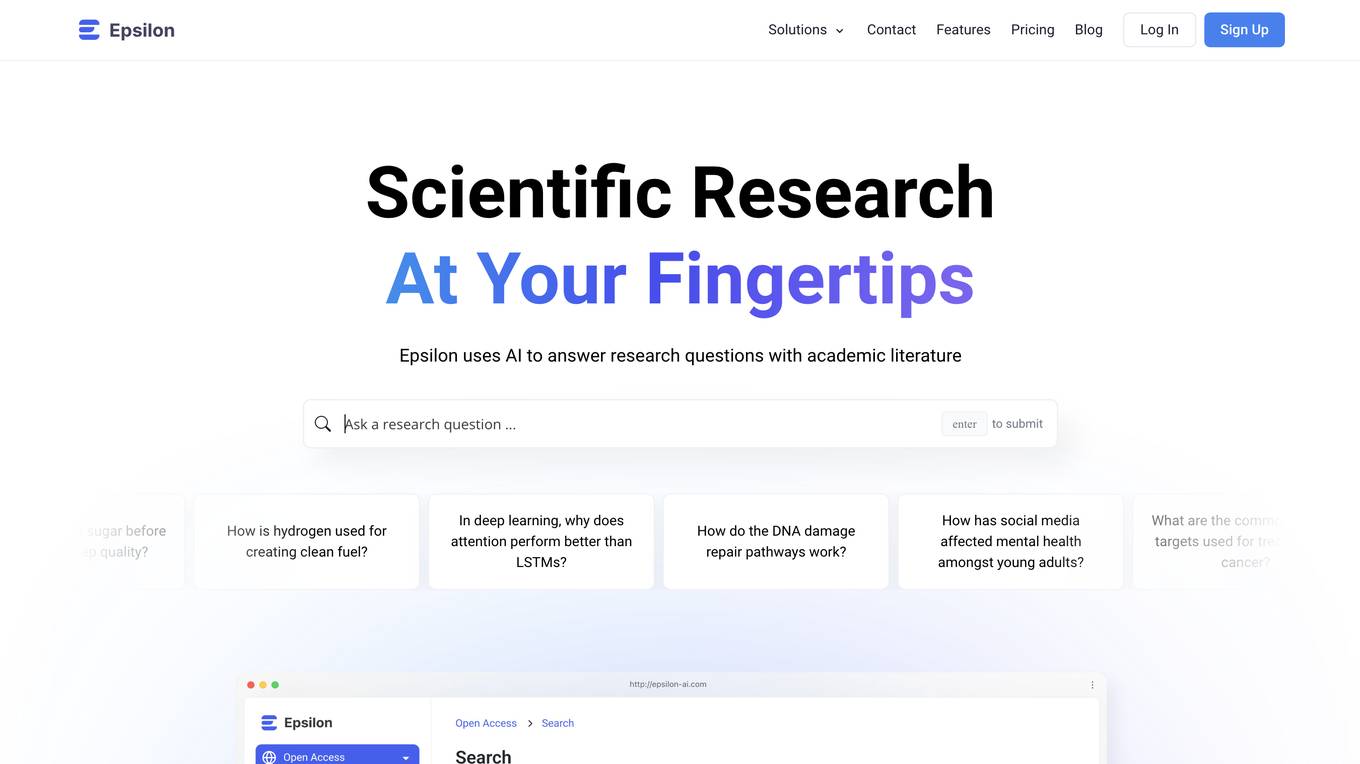
Epsilon
Epsilon is an AI search engine designed for scientific research solutions. It helps researchers find evidence, citations, and relevant information from over 200 million academic papers. Epsilon can summarize passages, group search results, extract key information from multiple papers, and provide comprehensive summaries. Trusted by over 30,000 researchers worldwide, Epsilon is a reliable tool for conducting literature reviews, drafting proposals, and executing research projects.
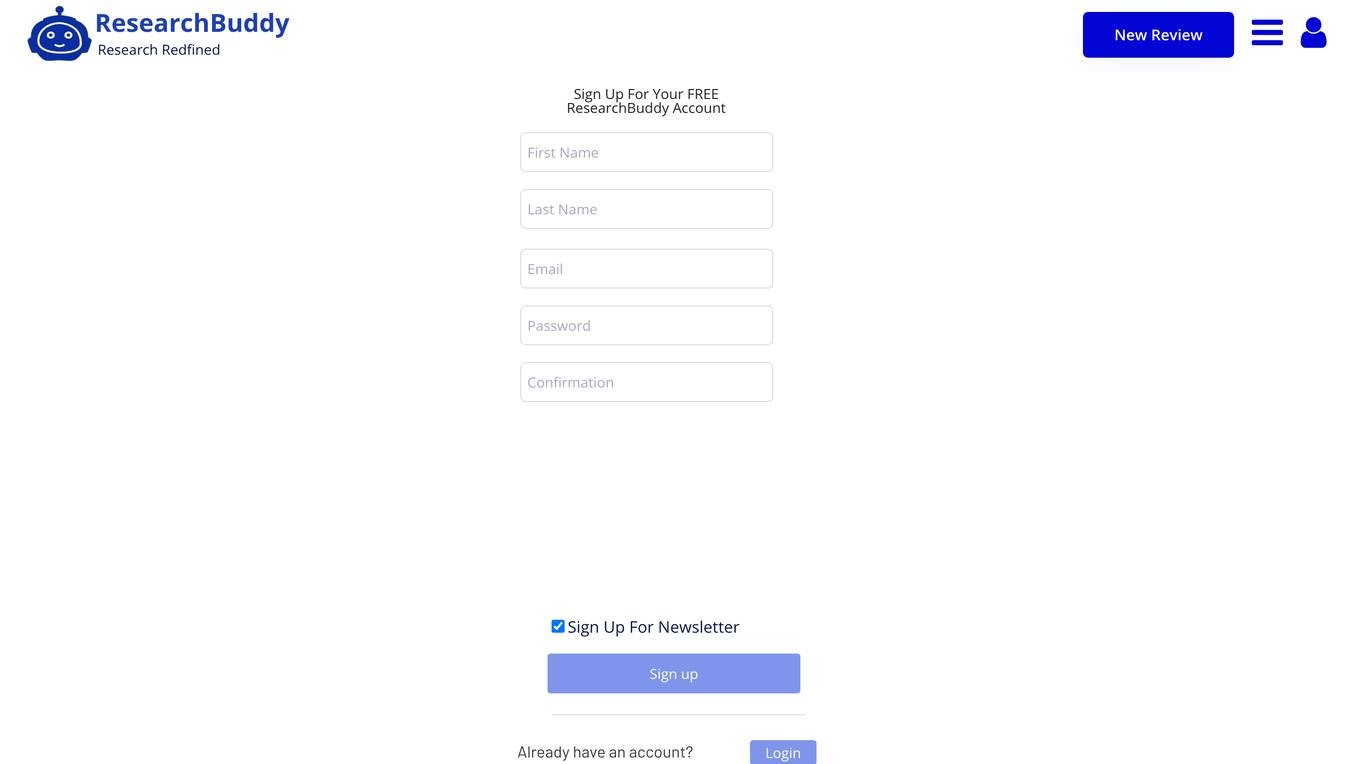
ResearchBuddy
ResearchBuddy is an AI tool designed to automate the process of conducting literature reviews. It helps researchers and students efficiently gather and analyze information from various sources to enhance their research projects. By leveraging artificial intelligence, ResearchBuddy streamlines the review process, saving users time and effort. The platform offers a user-friendly interface and advanced algorithms to deliver accurate and relevant results. With ResearchBuddy, users can access a comprehensive database of scholarly articles and publications, making it easier to stay up-to-date with the latest research trends and findings.
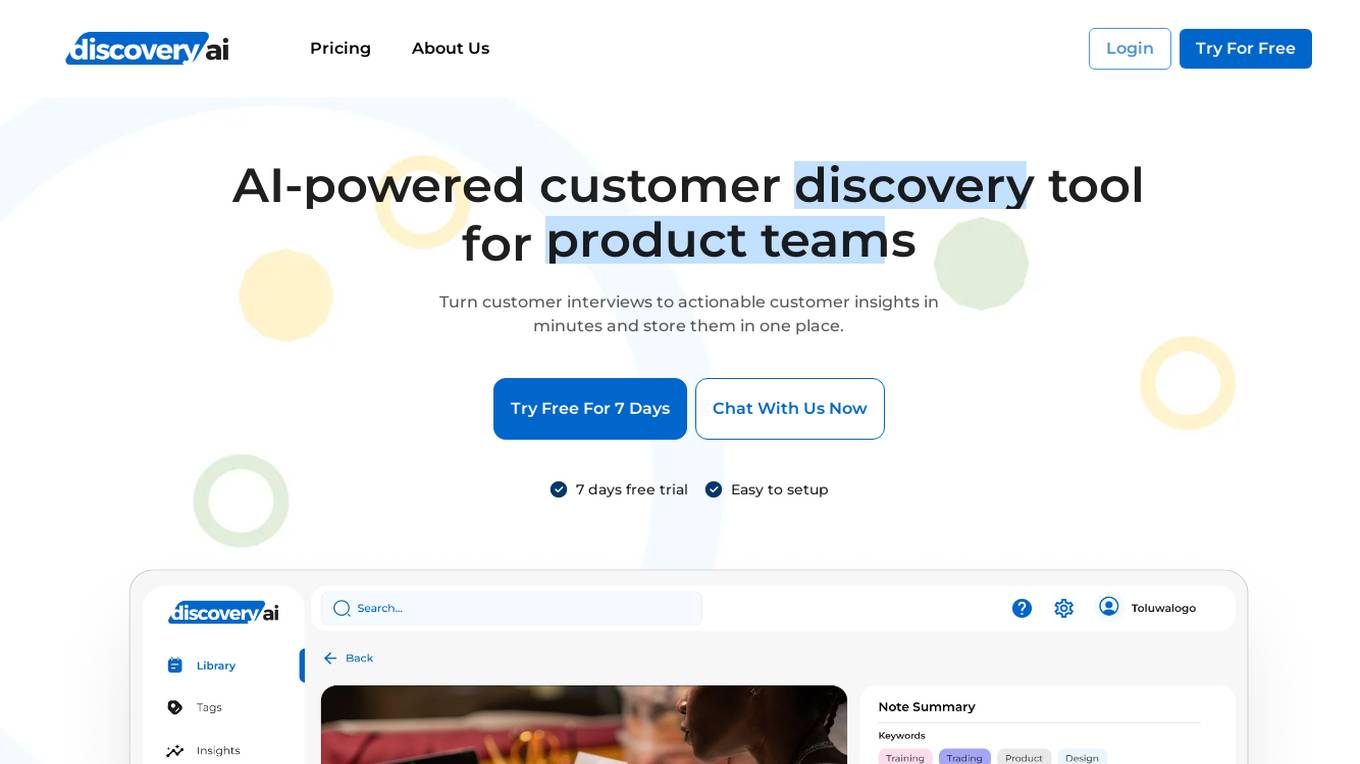
DiscoveryAi
DiscoveryAi is an AI-powered research assistant that helps you find and organize the information you need to make better decisions. With DiscoveryAi, you can quickly and easily search through a vast database of articles, news, and other content to find the information you need. You can also use DiscoveryAi to organize your research into folders and notes, and to collaborate with others on research projects.
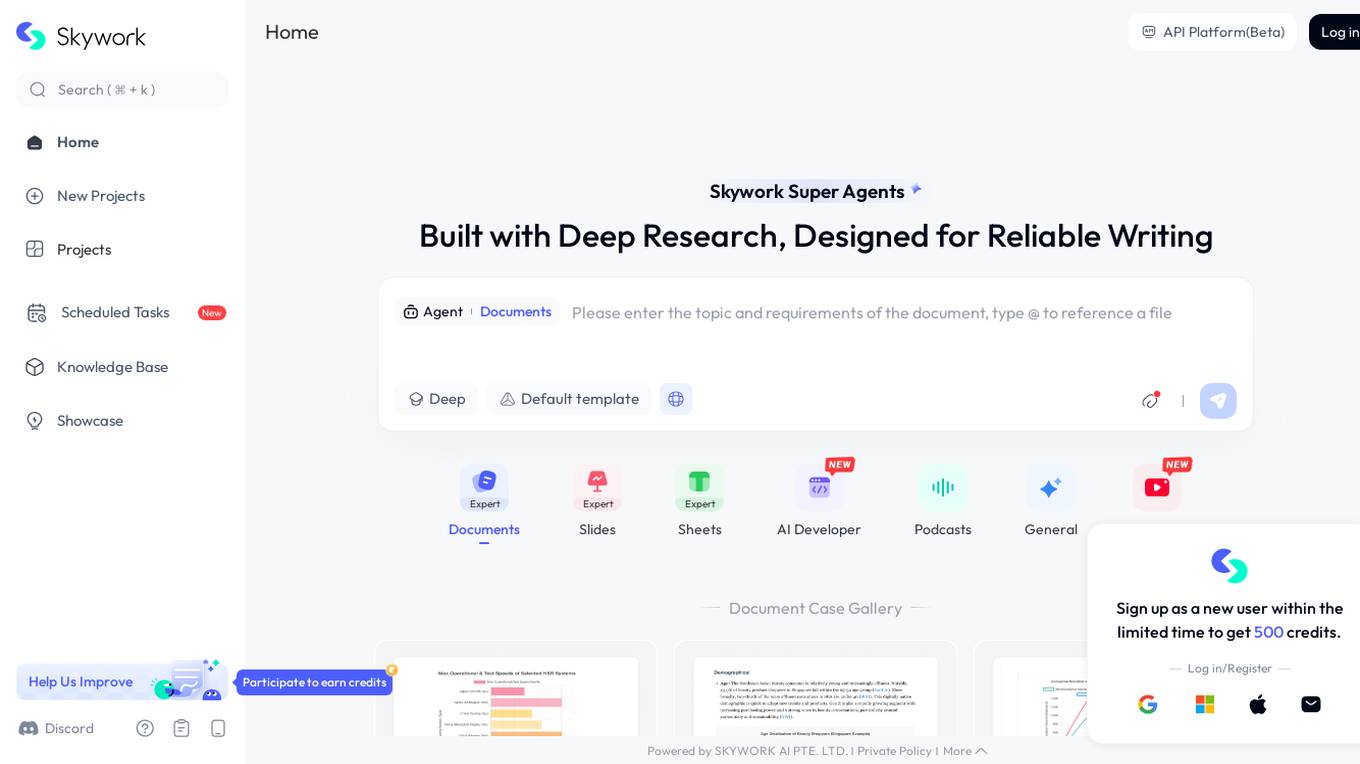
Skywork AI
Skywork AI is an AI-powered productivity tool designed to revolutionize the way people work. It offers a range of features to enhance workflow efficiency and productivity, such as generating professional documents, slides, and reports in minutes, and providing instant answers from credible sources. Skywork AI is tailored for modern knowledge workers, including students looking to save time on research projects. With its AI Workspace Agents, Skywork AI aims to boost productivity by 10x, turning 8 hours of work into just 8 minutes.
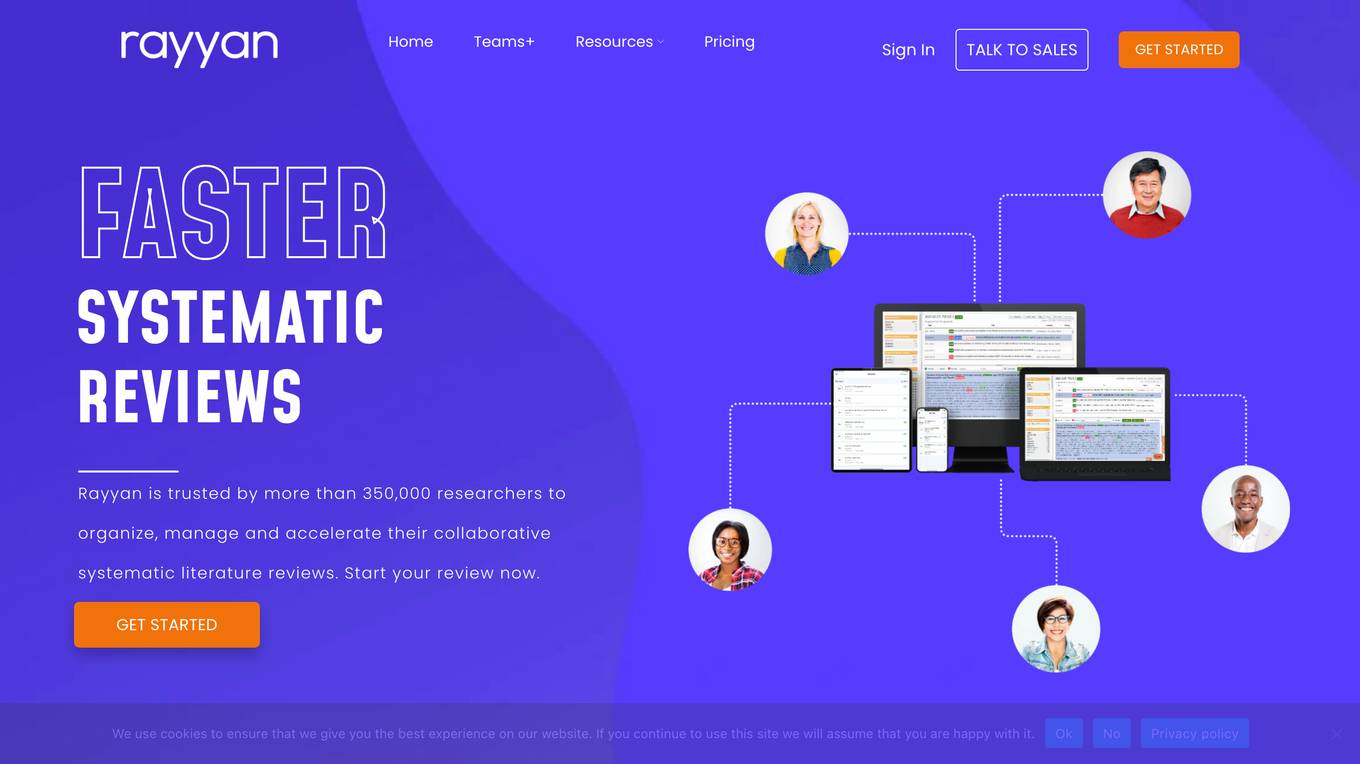
Rayyan
Rayyan is an intelligent systematic review tool trusted by over 500,000 researchers worldwide. It helps users organize, manage, and accelerate collaborative systematic literature reviews. Rayyan empowers users to work remotely and collaborate with distributed research teams, offering membership packages with onboarding, training, and priority support. The tool is designed to understand language, learn from user decisions, and facilitate quick navigation through systematic reviews. Rayyan also provides solutions for organizations and businesses to streamline research processes and save valuable researcher time.
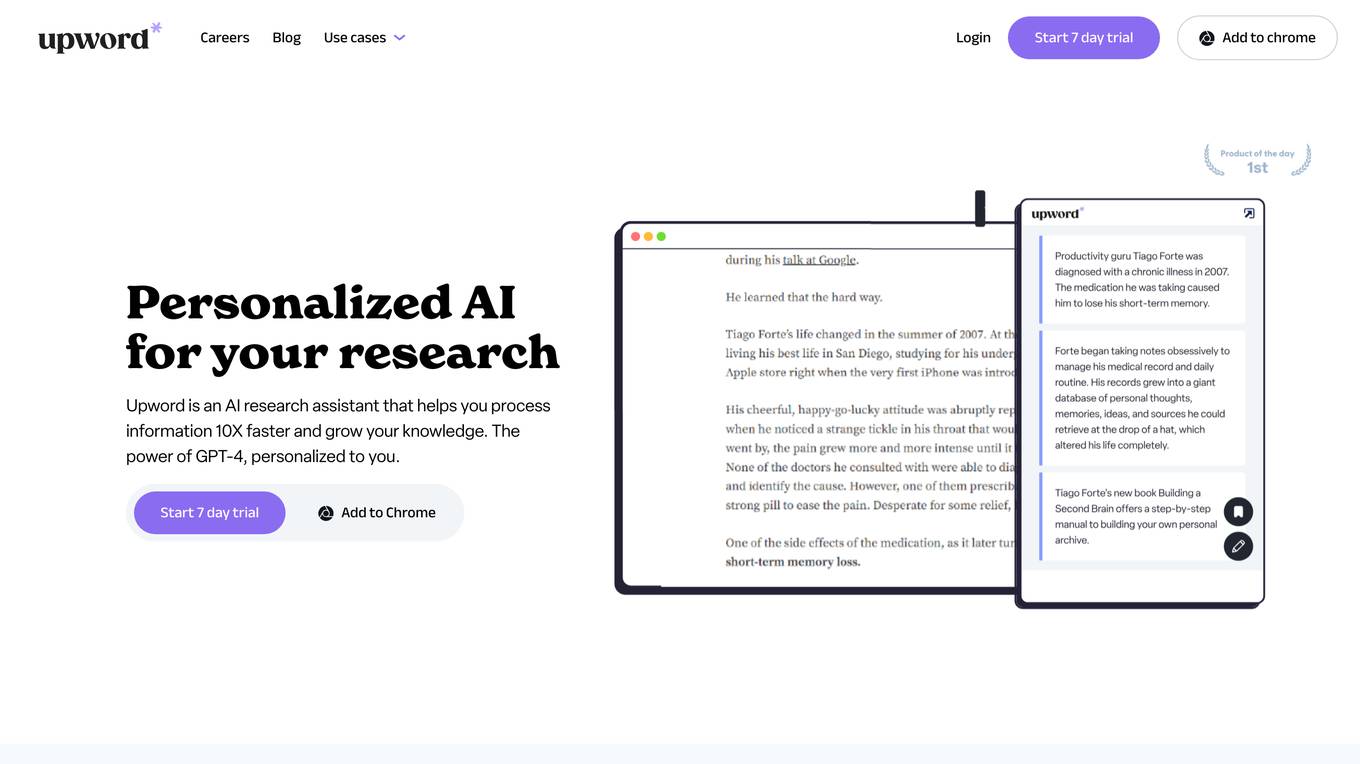
Upword
Upword is an AI-powered research assistant that allows users to control the AI research process, trust the results, and customize every step of the AI research process. Users can summarize various content types, create reports, manage research papers, and collaborate on research projects. Upword offers personalized AI chatbots, research templates, content curation, and a command center for managing research tasks efficiently.
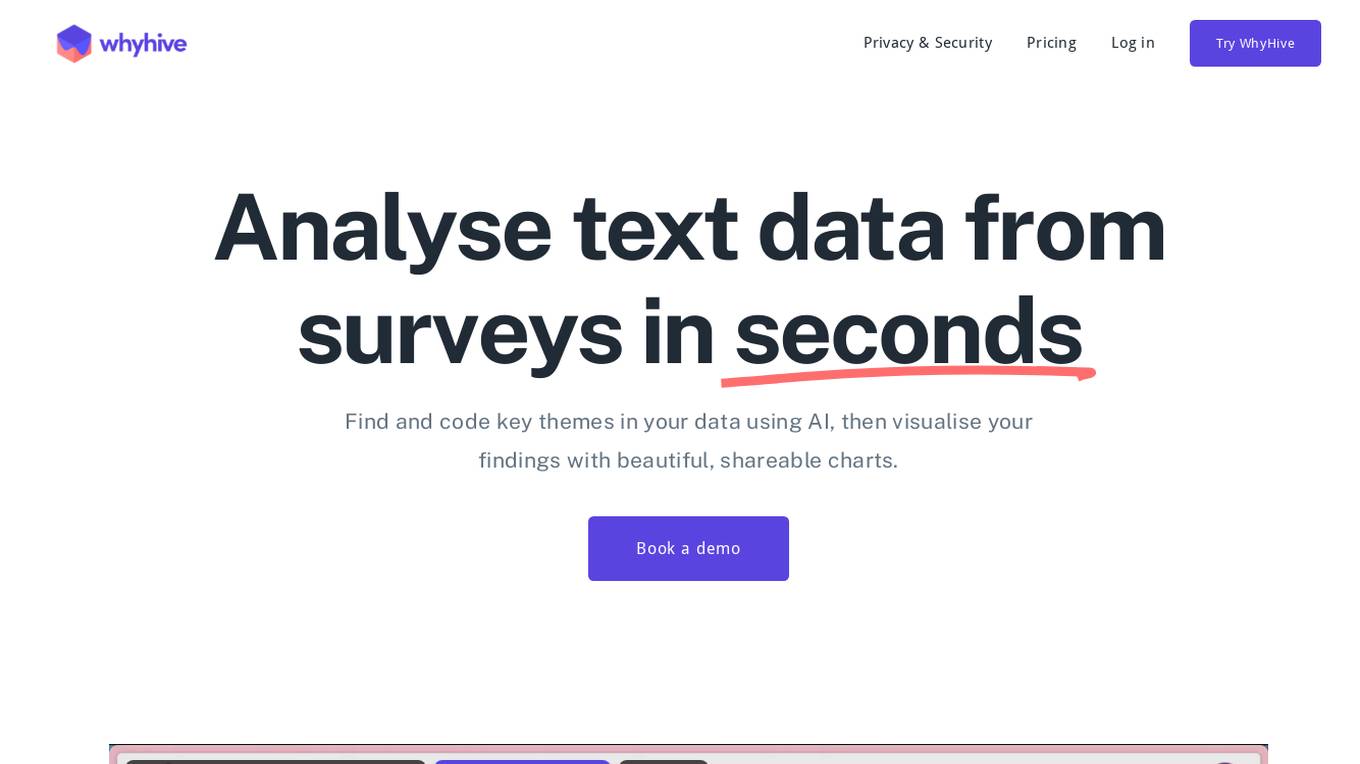
WhyHive
WhyHive is an AI-powered data analysis tool that helps users find and code key themes in their data, then visualize their findings with beautiful, shareable charts. It is designed to be easy to use, even for those with no prior experience with data analysis. WhyHive can analyze thousands of rows of data in minutes, saving users hours of manual coding time. It can also be used to analyze both quantitative and qualitative data, making it a versatile tool for a variety of research projects.
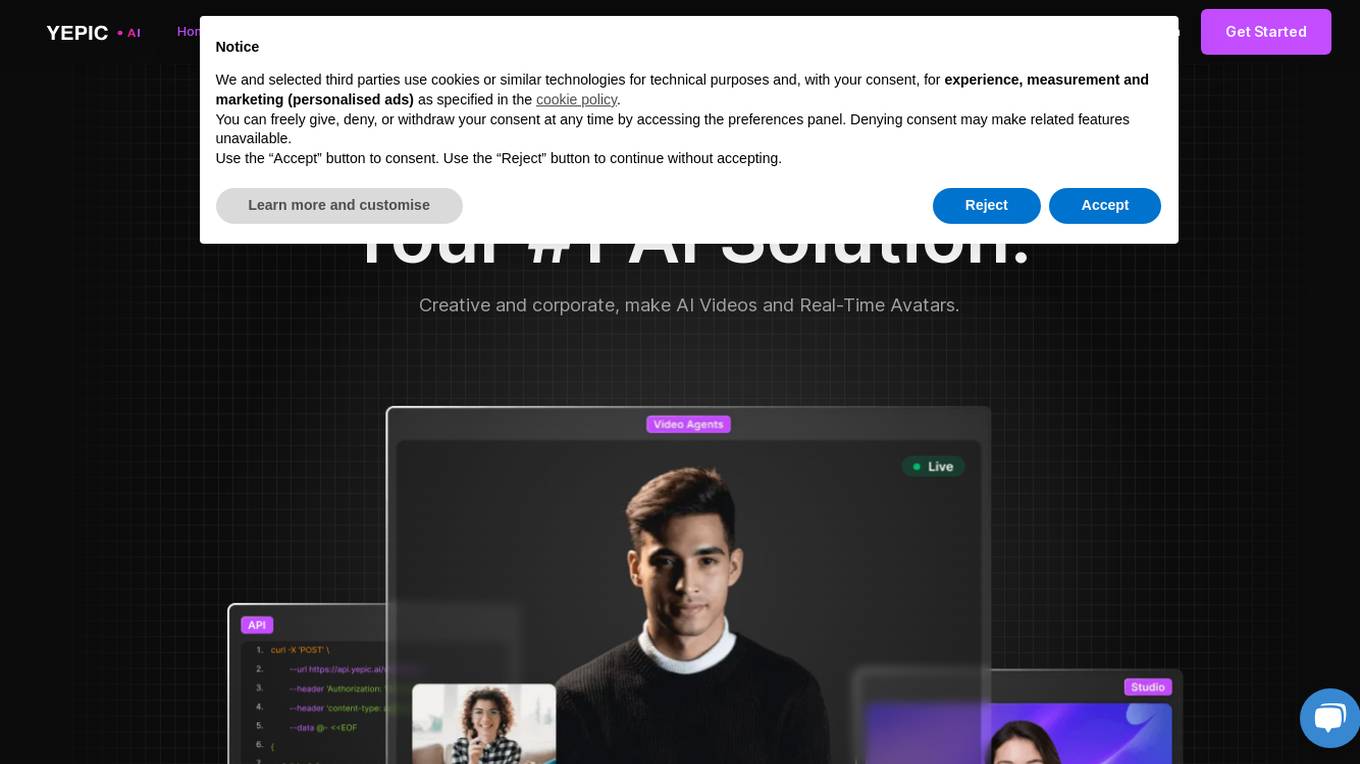
Yepic AI
Yepic AI is a comprehensive AI tool that offers a range of innovative solutions for creating AI videos, real-time avatars, and interactive video agents. The platform leverages advanced technologies such as facial recognition, emotional intelligence, and multilingual capabilities to provide engaging and personalized experiences. With features like lifelike avatar animation, contextual answers, and extensive language support, Yepic AI is designed to cater to various industries and use cases. The tool is developer-friendly with API documentation and research-backed projects, making it a versatile choice for businesses looking to integrate AI into their operations.
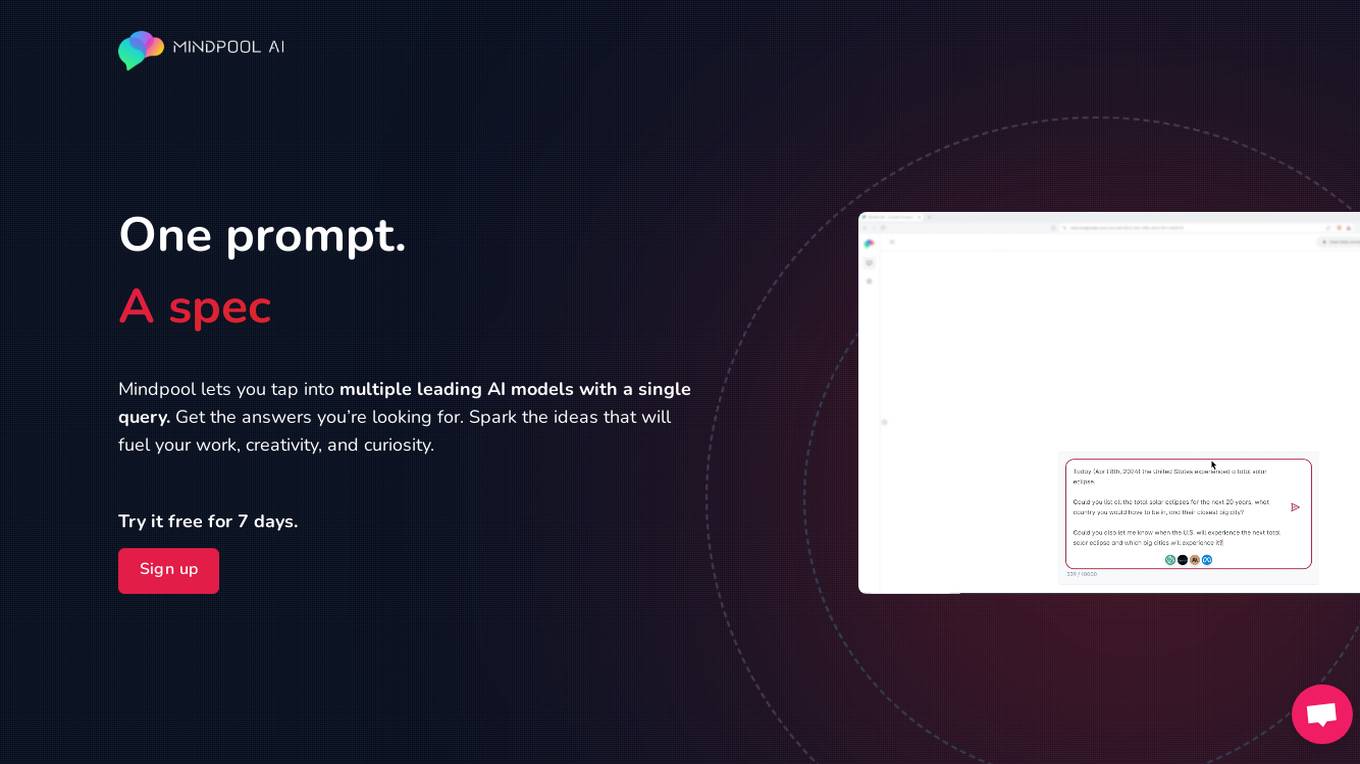
MindpoolAI
MindpoolAI is a tool that allows users to access multiple leading AI models with a single query. This means that users can get the answers they are looking for, spark ideas, and fuel their work, creativity, and curiosity. MindpoolAI is easy to use and does not require any technical expertise. Users simply need to enter their prompt and select the AI models they want to compare. MindpoolAI will then send the query to the selected models and present the results in an easy-to-understand format.
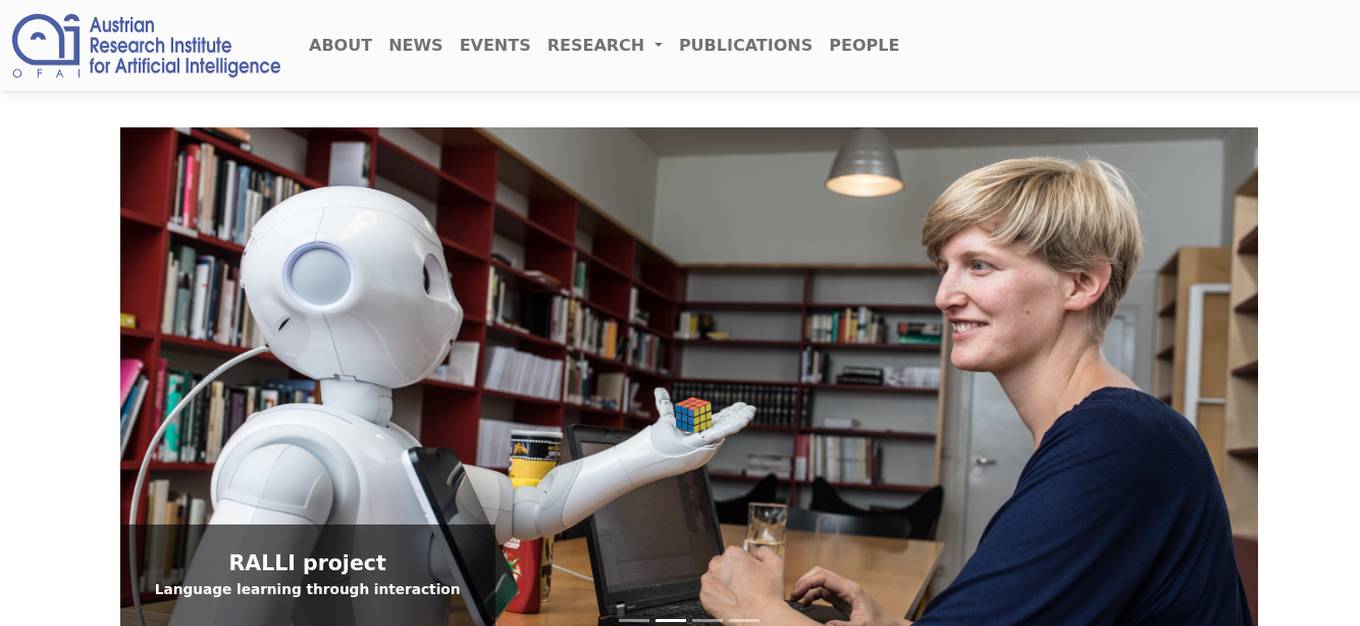
Austrian Research Institute for Artificial Intelligence
The Austrian Research Institute for Artificial Intelligence (OFAI) is a renowned institute based in Vienna, Austria, with a focus on AI research and development. With over 40 years of excellence in artificial intelligence, OFAI is dedicated to advancing language learning, computational linguistics, and AI applications. The institute collaborates on various projects, software development, and publications, contributing significantly to the field of AI. OFAI's work encompasses a wide range of research areas and resources, aiming to explore the potential of AI in different domains.
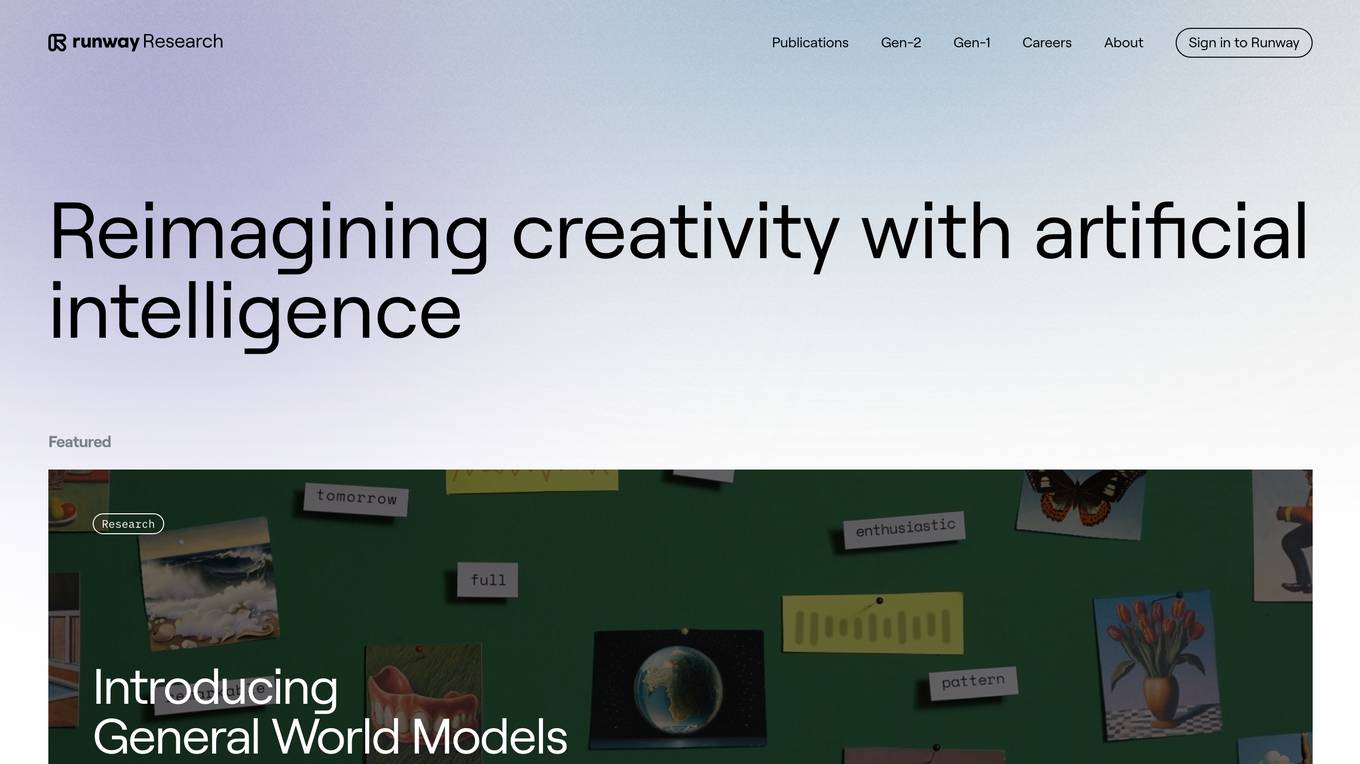
Runway
Runway is a platform that provides tools and resources for artists and researchers to create and explore artificial intelligence-powered creative applications. The platform includes a library of pre-trained models, a set of tools for building and training custom models, and a community of users who share their work and collaborate on projects. Runway's mission is to make AI more accessible and understandable, and to empower artists and researchers to create new and innovative forms of creative expression.

Google Research
Google Research is a leading research organization focusing on advancing science and artificial intelligence. They conduct research in various domains such as AI/ML foundations, responsible human-centric technology, science & societal impact, computing paradigms, and algorithms & optimization. Google Research aims to create an environment for diverse research across different time scales and levels of risk, driving advancements in computer science through fundamental and applied research. They publish hundreds of research papers annually, collaborate with the academic community, and work on projects that impact technology used by billions of people worldwide.
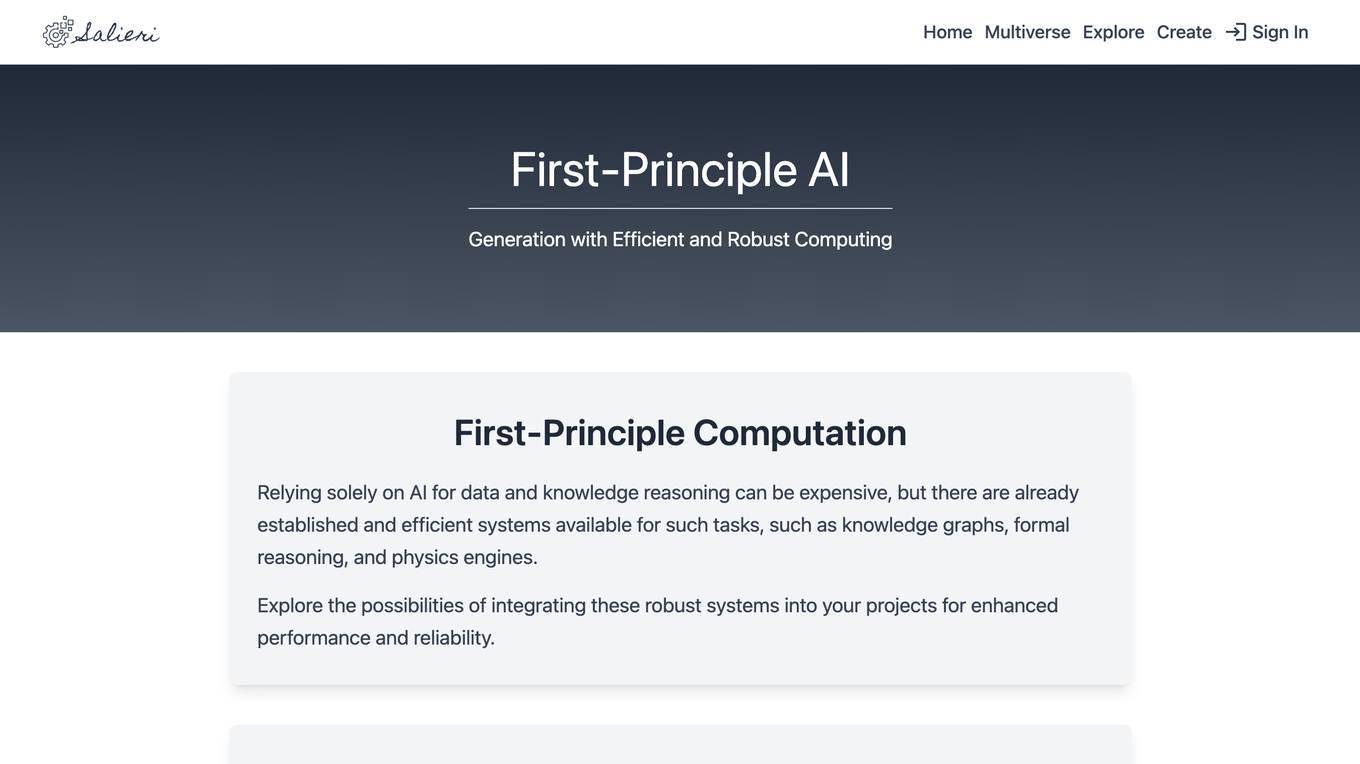
Salieri
Salieri is a multi-agent LLM home multiverse platform that offers an efficient, trustworthy, and automated AI workflow. The innovative Multiverse Factory allows developers to elevate their projects by generating personalized AI applications through an intuitive interface. The platform aims to optimize user queries via LLM API calls, reduce expenses, and enhance the cognitive functions of AI agents. Salieri's team comprises experts from top AI institutes like MIT and Google, focusing on generative AI, neural knowledge graph, and composite AI models.
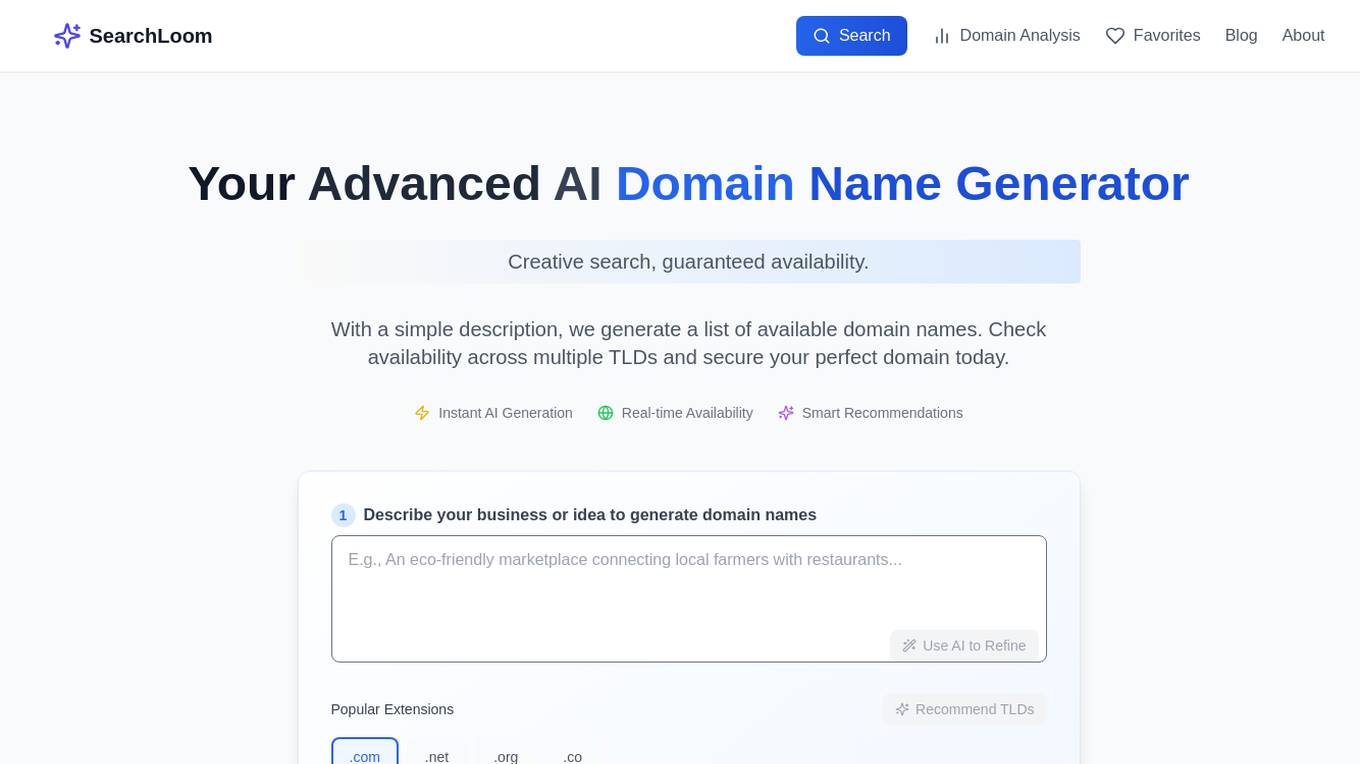
SearchLoom
SearchLoom is an AI-powered domain name generator that revolutionizes the process of finding the perfect domain name for your business or idea. By harnessing the power of artificial intelligence, SearchLoom generates creative and context-aware domain suggestions that align with your brand's identity and goals. The advanced AI technology analyzes your business description and industry context to provide intelligent domain recommendations across multiple TLDs, ensuring availability and relevance. With features like real-time availability checks, smart recommendations, and instant AI generation, SearchLoom offers a seamless and efficient domain search experience for modern businesses.

Reflection 70B
Reflection 70B is a next-gen open-source LLM powered by Llama 70B, offering groundbreaking self-correction capabilities that outsmart GPT-4. It provides advanced AI-powered conversations, assists with various tasks, and excels in accuracy and reliability. Users can engage in human-like conversations, receive assistance in research, coding, creative writing, and problem-solving, all while benefiting from its innovative self-correction mechanism. Reflection 70B sets new standards in AI performance and is designed to enhance productivity and decision-making across multiple domains.

NotedSource
NotedSource is a global research and innovation platform that connects users to a network of research experts. The platform utilizes AI to scout, vet, and manage collaboration projects efficiently. Users can post requests to evaluate experts, startups, and technologies, streamline contract drafting, simplify payments, and access a single project management platform. NotedSource also offers learning and development solutions, executive education, and strategy and innovation services.
0 - Open Source AI Tools
20 - OpenAI Gpts

Research Project Planning Partner
Assists in planning and guiding academic research projects.
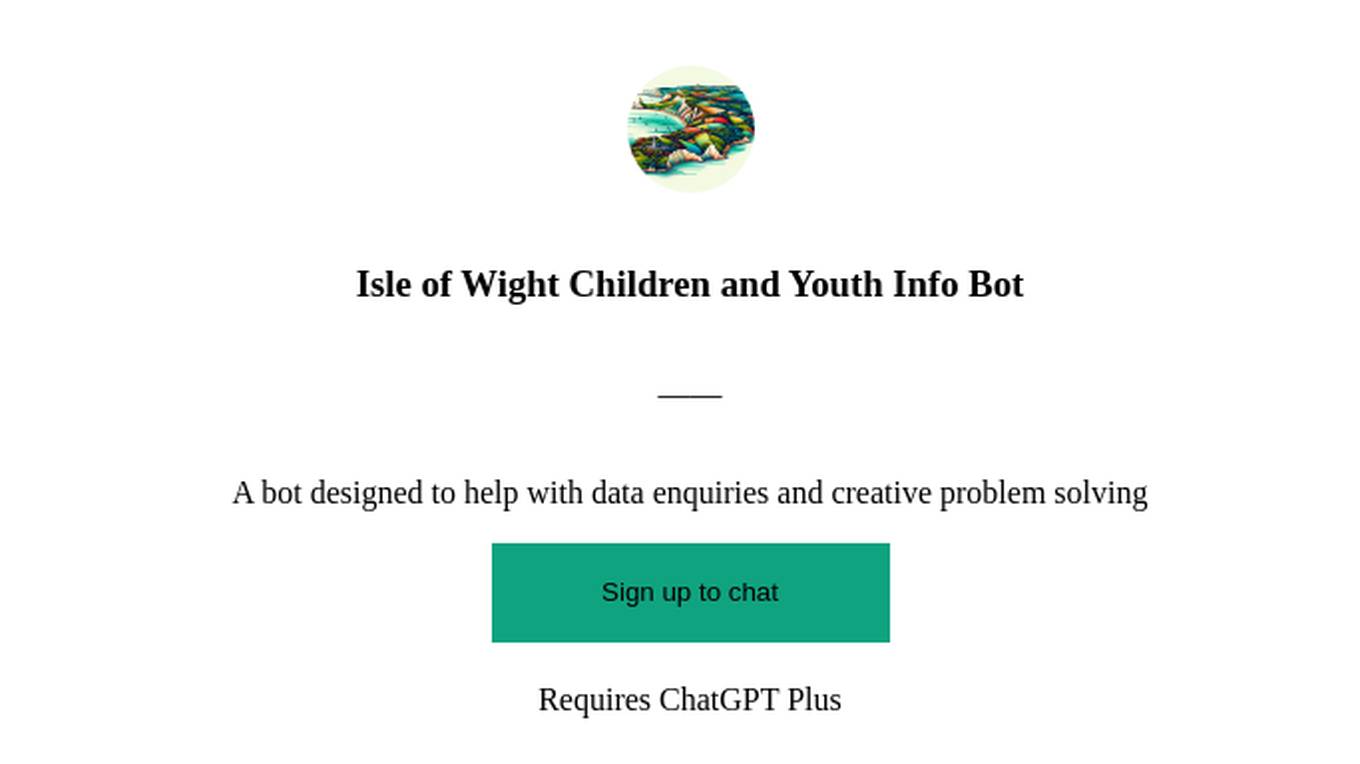
Isle of Wight Children and Youth Info Bot
A bot designed to help with data enquiries and creative problem solving
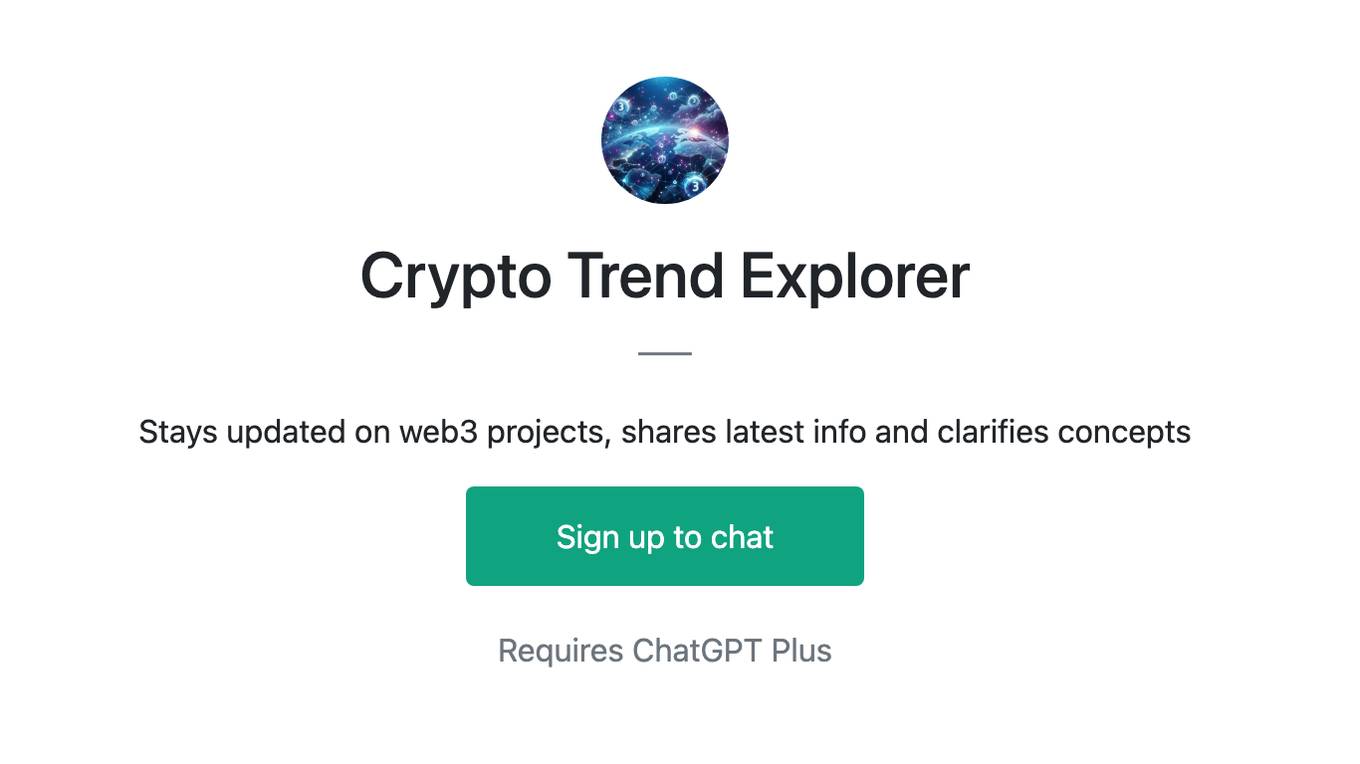
Crypto Trend Explorer
Stays updated on web3 projects, shares latest info and clarifies concepts
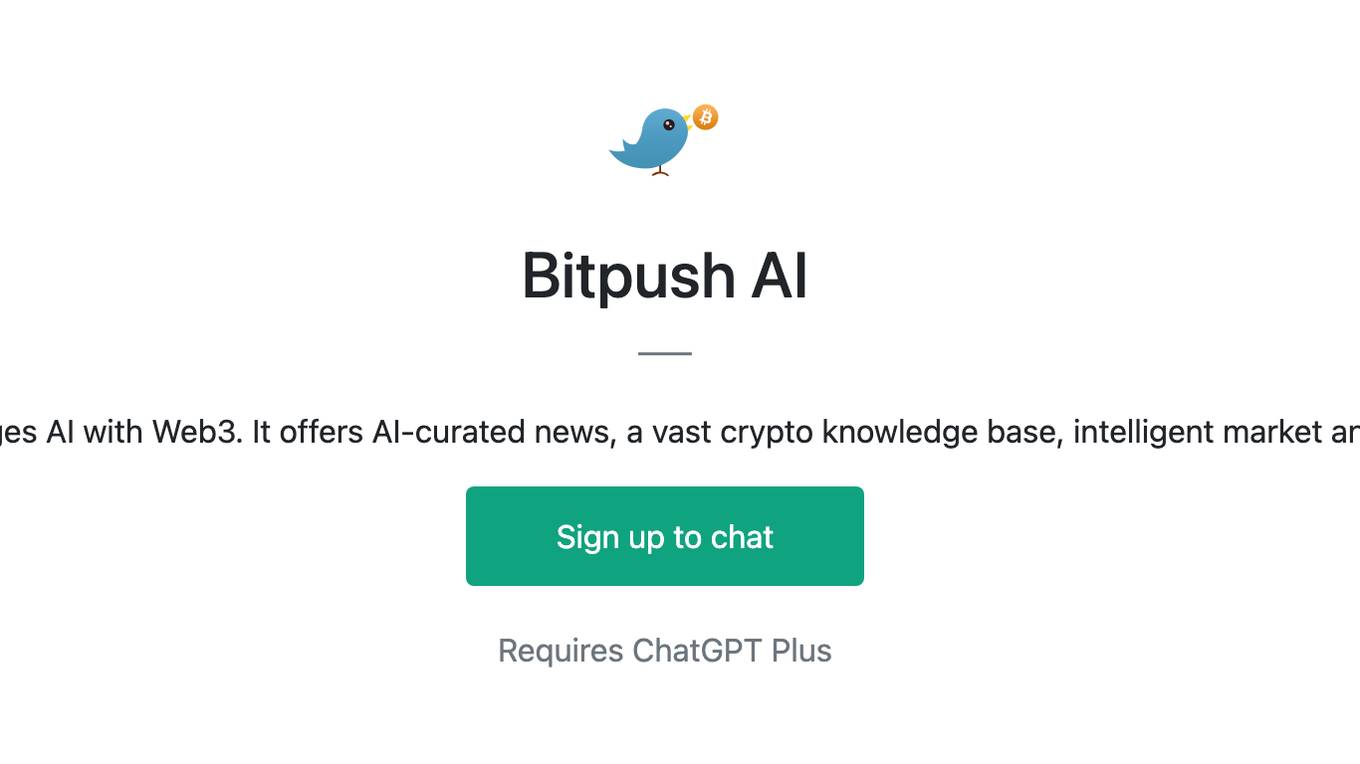
Bitpush AI
Your smart Web3 Navigator, merges AI with Web3. It offers AI-curated news, a vast crypto knowledge base, intelligent market analysis, and a community forum.
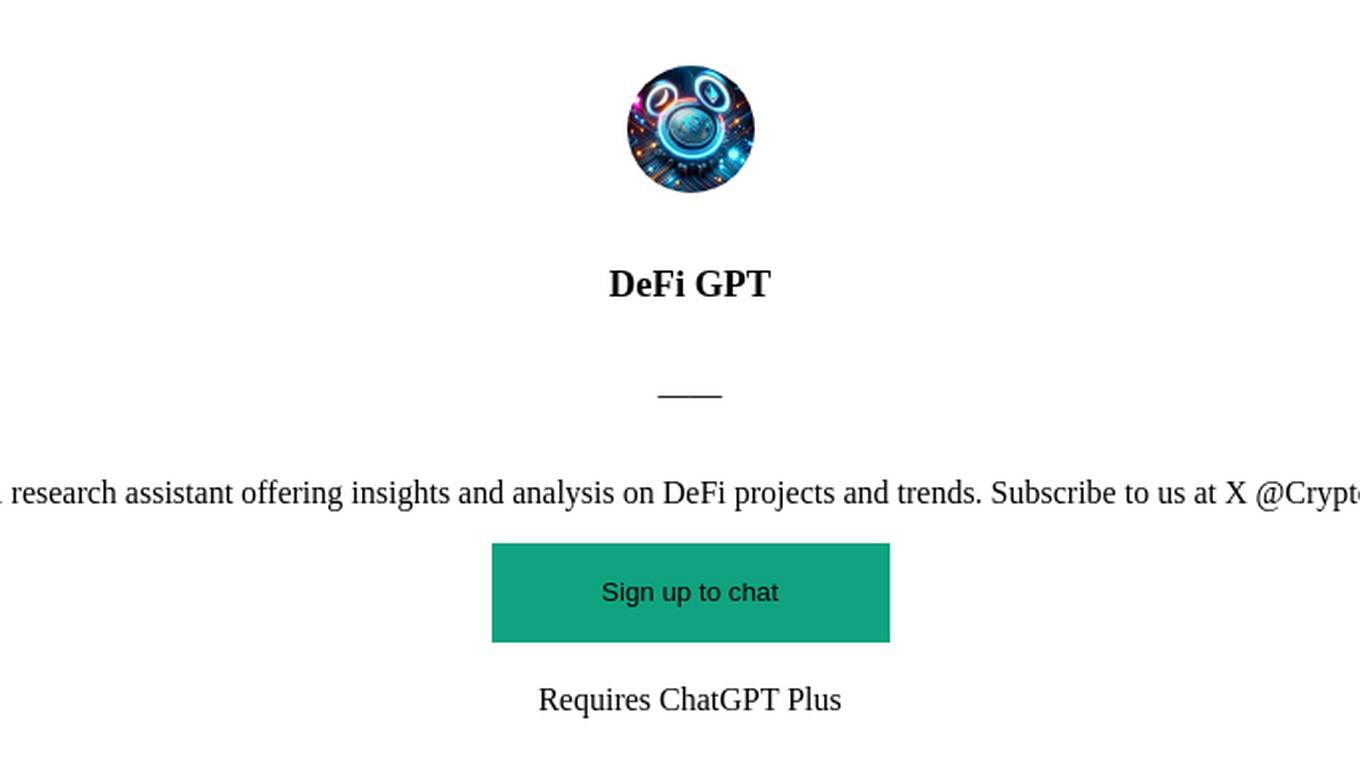
DeFi GPT
DeFi research assistant offering insights and analysis on DeFi projects and trends. Subscribe to us at X @CryptoLLM
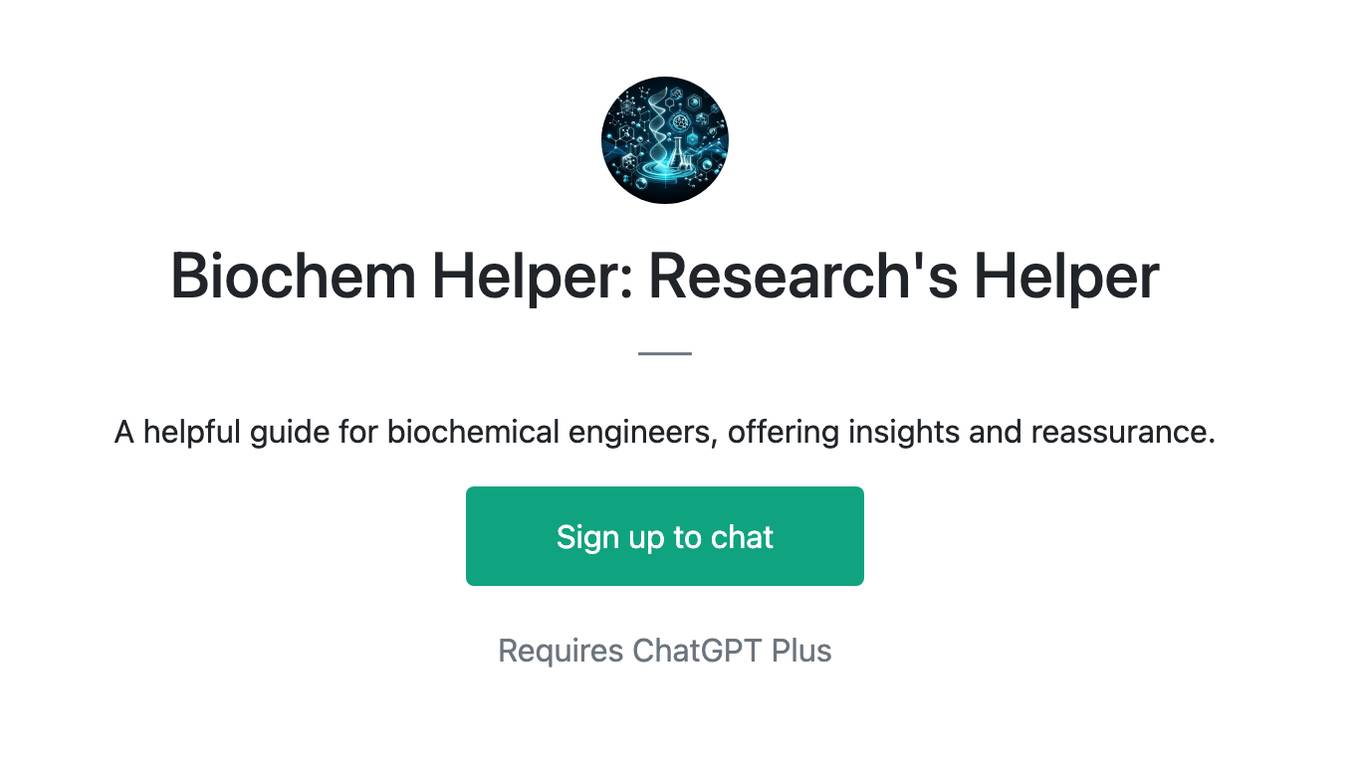
Biochem Helper: Research's Helper
A helpful guide for biochemical engineers, offering insights and reassurance.
